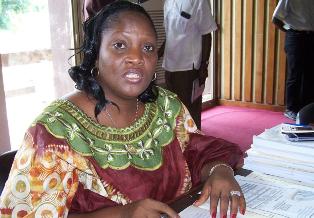Editorial: Infecting the Media with Poverty in Liberia
Some people describe poverty as a lack of essential items – such as food, clothing, water, and shelter – needed for proper living. At the UN’s World Summit on Social Development, the ‘Copenhagen Declaration’ described poverty as “…a condition characterized by severe deprivation of basic human needs, including food, safe drinking water, sanitation facilities, health, shelter, education and information.”
When people are unable to eat, go to school, or have any access to health care, then they can be considered to be in poverty, regardless of their income. The aforementioned is the backdrop of the Poverty Reduction Strategy launched by the Government of President Ellen Johnson-Sirleaf a few years ago. Its intention was to fight poverty across the nation just everywhere. While the government may think it is striving to fight poverty in all sectors of the Liberian society, it is at the same time infecting the media with poverty.
As the watchdog of the Liberian society, the media’s role is very pivotal as far as information dissemination is concerned. With the government’s ongoing efforts to meet the life expectancy of its citizenry, the media must serve as the fulcrum in tracking government’s progress and lapses in its Poverty Reduction Strategy program.
But if the media, charged with such foregoing responsibility, is being strangulated and treated as a “step child” by the very government, the possibility of realizing whether or not the PRS is succeeding becomes slim. At the moment, the Government of Liberia is indebted to the various newspapers, including the New Dawn-Liberia to the tone of several thousand United States dollars for services rendered it without any sense of even reasoning to make payment.
These are debts which date as far back as the mid-2010 and there is still no sign of payment. The government of Liberia must equally understand that in as much it wouldn’t want any delays in its tax payment, as well as poverty among its workforce, it must also live by the rules of the game by meeting up with its financial obligations to the newspapers.
It is no secret that we in the newspaper business, are required to meet the socio-economic needs of our employees at the end of every month, just as it is being done by the government. And if the very government to which we pay our taxes chooses to marginalize us as tax payers by creating hurdles or whatsoever in making payment for advertisements and other supplements, how does it expect us to survive out of poverty? However, then, should we convince that it is sincere about ‘fighting to reduce poverty in Liberia?
A number of government institutions indebted to newspapers are reported to have submitted vouchers to the Ministry of finance for payment, but the Ministry has not been able to give reasons as to why such payments are yet to be made. Such conspicuous behavior on the part of which ever government institution is vary tantamount to infecting the media with poverty, probably because of certain perceptions. But again, we must all understand that we are indeed in the same ’boat’ together, and should this boat capsize, it is obvious that beneath the river will be our next destination.
Therefore, in our drive toward success in the Poverty Reduction Strategy launched a few years ago by the government of Liberia, let not one sector of the society be marginalized. We need our money because it is on such funds we greatly depend to cater to our employees and sustain our newspapers. If for the love of Liberia, we pay our taxes, the government in return, must meet up with its financial obligations with us as a way of sustaining the cordial relations which subsist between the government and media in Liberia.
[bsa_pro_ad_space id=1]




















